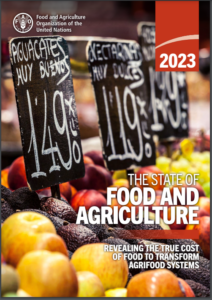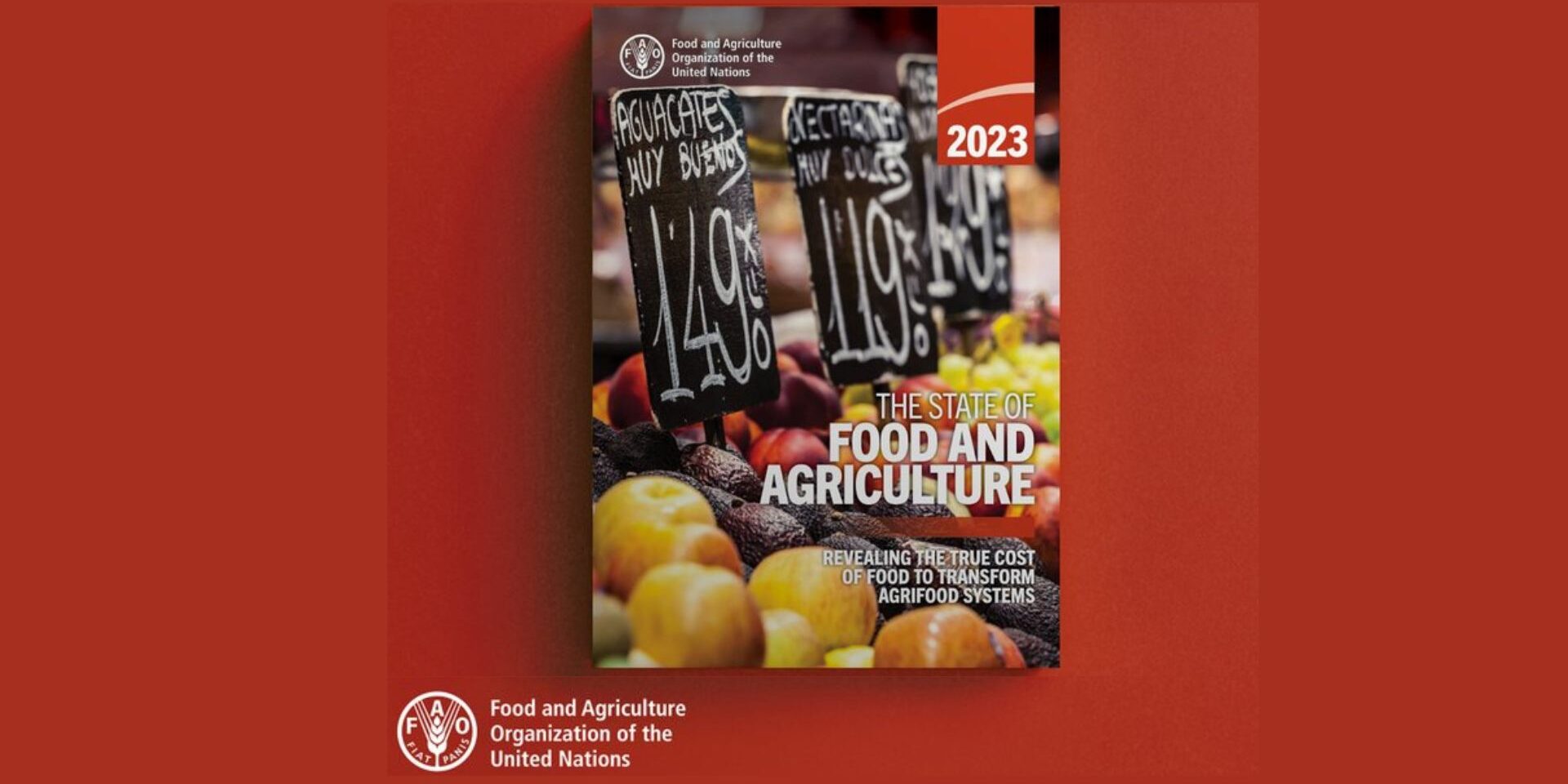Media Advisory: New UN report shows how true cost accounting can transform our food systems – and lives – for the better
FOR IMMEDIATE RELEASE
- The UN estimates that industrial agriculture and food systems cause at least $10 trillion in hidden environmental, social and health costs – nearly 10% of global GDP.
- The UN report uses true cost accounting to uncover the positive and negative impacts of food systems on our economy, environment and society.
- To improve food systems, avoid hidden costs and uncover new benefits, policy makers must start using true cost accounting. Only then can we transform our food systems – and lives – for the better.
 Launched today, the United Nations’ State of Food and Agriculture report shows that global agriculture and food systems cause hidden environmental, social and health costs amounting to at least $10 trillion each year – nearly 10% of global GDP.
Launched today, the United Nations’ State of Food and Agriculture report shows that global agriculture and food systems cause hidden environmental, social and health costs amounting to at least $10 trillion each year – nearly 10% of global GDP.
The report uses true cost accounting (TCA) to uncover the costs and benefits of food systems on our economy, environment and society. It finds that the largest hidden costs – more than 70% – stem from unhealthy dietary patterns, driven by systemic failures like food insecurity and over production and consumption of ultra-processed foods. One fifth of the total costs are environment-related, from greenhouse gas and nitrogen emissions, land-use change and water use.
“Policy makers must start accounting for these hidden costs. We need to go beyond conventional metrics like crop yields, and understand the value of the whole system inclusive of its health outcomes and environmental impacts,” said Jenn Yates, Director of the True Cost Accounting Accelerator.
TCA is an approach that aims to capture the positive and negative impacts of food systems, enabling policymakers to identify the best levers to transform agrifood systems so that they bring value to their communities and tackle climate change, poverty, inequality and hunger.
In India, policy makers have successfully used true cost accounting to support Andhra Pradesh’s state-wide transformation to agroecological farming. By adopting true cost accounting, net incomes increased by almost 50%, safer farming methods resulted in better health outcomes and there were fewer days lost to illness. In Thailand, policy makers used true cost accounting to uncover the hidden costs and benefits of transitioning to organic rice farming. They calculated over $4 billion in potential health savings, due to less burning of fields and reduced use of pesticides, resulting in better air quality and fewer respiratory illnesses.
“The success of these initiatives show how government leaders can use true cost accounting to solve the country-specific challenges outlined in today’s UN report. Policymakers should follow the example of leaders in India, Thailand and other countries and use true cost accounting to build a roadmap to solutions that create a healthy, resilient food system that’s fit for the future,” said Yates.
“The launch of today’s report is the result of years of work from hundreds of top scientists, academics, campaigners and policy makers around the world. It’s a landmark moment which shows that the UN is backing true cost accounting to help fix our food system. Those of us in the true cost accounting community are eager to now work with decision makers to rapidly transform our food systems for good,” said Pavan Sukhdev, Founder-CEO of GIST Impact and study leader for the UN Environment Programme’s true cost accounting framework.
/ENDS
The UN Food and Agriculture Organization (FAO), launched its flagship report, The State of Food and Agriculture 2023, on Monday 6th November.
The report finds that the environmental, health and social hidden costs of our agrifood systems are at least $10 trillion a year. This represents almost 10% of global GDP.
The report urges governments and the private sector to use true cost accounting to transform agrifood systems and address climate change, poverty, inequality and hunger at the same time.
To find out more about true cost accounting or arrange an interview with Jenn Yates, Director of the True Cost Accounting Accelerator, please contact charlie.zajicek@digacommunications.com.
The True Cost Accounting Accelerator is a global network advocating for the transition to a just, sustainable, and healthy food system through widespread adoption of true cost accounting. It is an Allied Initiative of the Global Alliance for the Future of Food.



